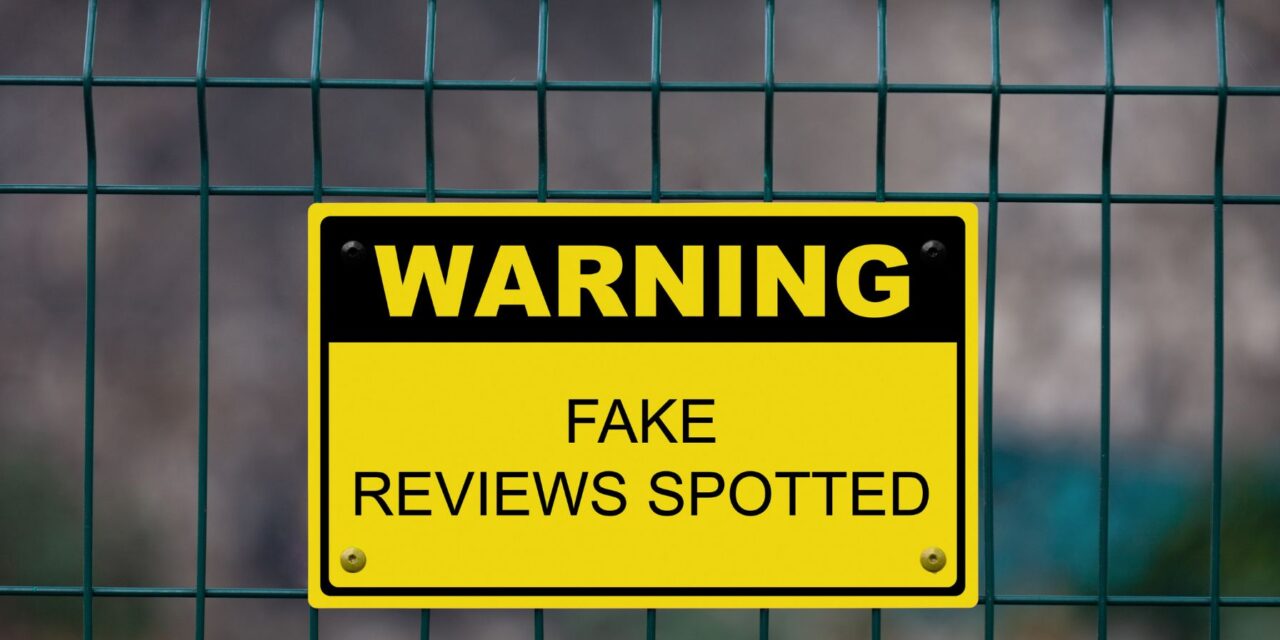In the digital marketplace, reviews hold significant sway over consumer decisions, effectively shaping the reputation of businesses and products. Unfortunately, the credibility of online reviews is often compromised by the presence of fake feedback. These misleading reviews can distort consumers’ perceptions and damage the trust that is essential to the relationship between brands and their customers. Given the impact that fake reviews have on consumer protection, it’s vital that companies understand how to spot and mitigate their influence.
Tackling fake reviews requires a multi-faceted approach that involves vigilance, transparency, and a proactive stance. Businesses must employ strategies that not only detect and eliminate fake feedback but also maintain the integrity of genuine customer reviews. As the online market continues to evolve, adapting to new challenges is key; staying informed about the latest trends in fake review tactics ensures businesses can protect their reputation effectively in this ever-changing landscape.
Key Takeaways
- Fake reviews threaten consumer trust and business reputation.
- Strategies to identify and eliminate fake feedback are essential for maintaining review integrity.
- Adaptability in tactics ensures long-term protection against misleading reviews in a dynamic online market.
Understanding the Landscape of Online Reviews
In the digital age, online reviews are pivotal in shaping consumer trust and influencing purchasing decisions. Their impact extends to fostering fair competition among businesses, mandating a critical examination of their authenticity.
The Impact of Reviews on Consumers and Businesses
Consumers often rely on feedback from other buyers to gauge the quality and reliability of products or services. A study on authenticated anonymous reviews suggests that genuine customer testimonials can significantly enhance consumer trust, encouraging informed purchase decisions. Conversely, misleading reviews can damage a business’s reputation and lead to legal ramifications.
For businesses, both in the US and globally, positive reviews can be a powerful marketing tool that boosts visibility and sales. The Federal Trade Commission (FTC) in the US enforces guidelines to ensure reviews reflect genuine customer experiences, promoting fair competition and protecting businesses from the harms of fraudulent feedback.
Distinguishing Between Genuine and Misleading Reviews
Identifying authentic reviews requires a keen eye for detail. Genuine reviews typically provide specific information about the customer’s experience, while fake reviews may be vague or overly positive, lacking in context. Resources like the article “Understanding online fake review production strategies” provide insights into how spurious reviews are crafted, making it easier for both consumers and businesses to spot them.
Legal Frameworks Addressing Fake Reviews
Legal frameworks in the EU, UK, and the US are adapting to the challenge of fake reviews. Within the European Union, the Unfair Commercial Practices Directive aims to protect consumer interests, which includes combating false advertising and related deceptive practices. The UK has similar regulations under the Consumer Protection from Unfair Trading Regulations, designed to uphold the integrity of online marketplaces. These laws serve as the foundation for maintaining the reliability of online review systems.
Identifying Fake Reviews and Their Sources
Proper identification of fake reviews is vital for maintaining the integrity of customer feedback. This section discusses the distinct markers that can identify fake reviews, the technological tools available for detection, and the approaches review platforms employ to monitor feedback.
Common Characteristics of Fake Reviews
Fake reviews often exhibit certain red flags that can tip off an alert reader. One of the telltale signs is the presence of overly positive or negative language without substantive detail. Verified purchases and the inclusion of photos are less likely in fake feedback, since the reviewer typically has not had a genuine customer experience. Grammatical mistakes, typos, and factual inaccuracies can also indicate that the review may not be authentic.
Technological Tools for Detection: AI and Browser Extensions
With the evolution of technology, artificial intelligence (AI) systems are increasingly deployed to detect patterns indicative of fake reviews. These systems can analyze vast quantities of data to spot anomalies and inconsistencies characteristic of inauthentic feedback. Additionally, browser extensions such as Fakespot integrate with your internet browser and leverage AI to provide instant analysis of online reviews on e-commerce sites.
The Role of Review Platforms in Monitoring Feedback
Review platforms have a crucial role in the battle against fake reviews. They’re expected to implement advanced monitoring systems to vet reviews and uphold the trustworthiness of their service. Moreover, many platforms now prioritize reviews tagged as verified purchases to enhance the reliability of posted feedback. These platforms may also implement countermeasures such as flagging suspicious accounts and using tools to detect bot-like activities, tightening their review submission criteria to discourage the proliferation of fake reviews.
Effective Strategies for Managing and Responding to Fake Reviews
Businesses must remain vigilant in monitoring their online presence, tackling fake reviews with a two-pronged approach: removal and reputation management. Employing these strategies ensures the integrity of customer feedback and safeguards the brand’s online image.
Procedures to Report and Remove Inauthentic Feedback
To handle fake online reviews, one must take systematic steps to report them to the appropriate platforms. E-commerce and social media sites typically have protocols for flagging and reviewing potentially fraudulent content. The process often includes providing evidence of the review’s inauthenticity and submitting a formal complaint. It’s crucial to act promptly, as prolonged exposure to fake reviews can damage a brand’s credibility.
Engaging with Customers to Build Trust
Openly engaging with customers fosters a sense of trust and community. Transparent communication can help counteract the effects of fake feedback. Respond to genuine reviews with gratitude or additional information, which can remind your audience of your brand’s authenticity and trustworthiness. When addressing negative remarks, always be respectful and offer solutions, reinforcing your commitment to customer satisfaction.
Preventive Measures to Protect Your Online Image
Proactive prevention is key to protecting a business’s image. This can involve outlining clear policies against incentivizing reviews and educating customers on the importance of authentic feedback. Regularly auditing reviews for inconsistencies and training staff to recognize fake reviews are vital practices. Additionally, highlighting verified purchase badges on e-commerce sites deters malpractice and reinforces the legitimacy of customer feedback.
Adapting to an Ever-Evolving Online Market
The online market landscape is in constant flux, necessitating that e-commerce platforms and sellers develop vigilant and adaptive strategies for combating fake reviews. The adoption of sophisticated techniques is pivotal not only for maintaining market integrity but also for securing a brand’s competitive edge.
The Evolving Nature of E-Commerce Platforms
E-commerce platforms have undergone vast transformations, evolving from simple online storefronts to complex digital marketplaces like Amazon and eBay. These platforms must continuously update their algorithms and employ advanced machine learning techniques to detect and filter out fake reviews, thereby protecting both consumers and genuine sellers. It is crucial for marketplaces to provide an objective shopping experience by ensuring that only authentic feedback influences consumer choice.
Staying Informed and Ahead of Bad Actors
Constant vigilance is key for platforms such as Google, Yelp, and TripAdvisor who are on the frontline of this battle against misinformation. By staying informed about the latest tactics used by unscrupulous entities, these companies can develop proactive measures to preempt and neutralize manipulative feedback. Transparency with their activity—such as Airbnb and Expedia detailing their processes for combating fraudulent reviews—helps build trust with users.
Commitment to Authenticity for Competitive Advantage
For sellers, a steadfast dedication to authenticity not only fortifies their brand’s reputation but also contributes significantly to achieving a sustainable competitive advantage. Customers are drawn to sellers on digital platforms who consistently get genuine, positive feedback, as it signals a higher level of trustworthiness and service quality. Upholding the highest standards of authenticity can lead to increased market share and customer loyalty.
By embracing these proactive strategies, the digital sales ecosystem can become more resilient and trustworthy, fostering a better experience for all users involved.
Frequently Asked Questions
The “Frequently Asked Questions” section provides direct answers regarding the identification and handling of fake reviews. It offers practical steps for businesses to address and eliminate misleading feedback.
What methods can be employed to identify fake reviews online?
Businesses can identify fake reviews by examining the content for excessive positivity or negativity, checking the reviewer’s profile for authenticity, and analyzing if multiple reviews share identical phrasing. Tools and techniques such as pattern detection algorithms also play a crucial role in spotting fraudulent reviews.
Which steps should a business take to address fake negative reviews on their profile?
When a business encounters a fake negative review, they should report the review to the platform, respond professionally to maintain their reputation, and invite the reviewer to discuss the matter offline, if possible. It’s important to follow the reporting procedures outlined by each review platform.
What are the effective tactics to eliminate misleading feedback on e-commerce platforms?
To eliminate misleading feedback, e-commerce platforms can implement robust verification processes, employ automated detection systems, and encourage honest customer reviews to overshadow the false ones. Platforms should enforce strict guidelines against fake reviews and take decisive action when they are detected.
How do you analyze the authenticity of customer reviews?
Authenticity is analyzed by reviewing the detailedness of the customer’s feedback, the timing of multiple reviews, and the reviewer’s history. Reviews with specific personal experience details are more likely to be genuine, whereas vague or generic comments might indicate inauthenticity.
Can fake feedback be legally addressed, and what are the implications?
Fake feedback can be legally addressed under laws that protect against deceptive practices and fraud. The implications for those posting fake reviews can include legal repercussions, fines, and damage to reputation. Legal approaches may vary based on jurisdiction and specific circumstances.
Is there technology available that can detect deceptive review patterns?
Yes, technology is available that can detect deceptive review patterns using algorithms designed to identify inconsistencies in reviewer behavior, language patterns, and review frequency. Such technological tools are continually being refined to better spot fake reviews and maintain the integrity of consumer feedback platforms.




